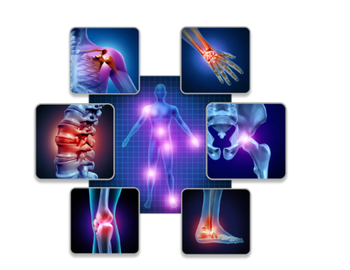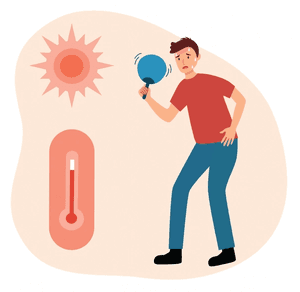
Various OTC analgesic and anesthetic products can be effective in providing prompt, temporary relief from discomfort.
Yvette C. Terrie, BSPharm, RPh, is a consulting pharmacist and medical writer in Haymarket, Virginia.

Various OTC analgesic and anesthetic products can be effective in providing prompt, temporary relief from discomfort.

Vitamin D is vital for bone health and immune function, yet many Americans remain deficient.

Proactive Monitoring and Patient Education Are Key Roles for Pharmacists

Pharmacists play a vital role in managing respiratory virus season by providing vaccinations, counseling, and recommending effective treatments for patients.

The extensive selection of OTC products for GI problems can be challenging for patients to navigate.

Prompt identification and appropriate clinical intervention are critical.

The American Heart Association recommends an automatic, cuff-style upper arm monitor.

When no contraindications are present, most cases can be managed well with nonsteroidal anti-inflammatory drugs.

Patients should understand that routine skin care is an important facet in the overall management of diabetes.

Data indicate potential benefits and risks with nutritional supplement use, highlighting the need for pharmacist counseling.

Pharmacists can identify medications and conditions that may augment or exacerbate constipation.

With a wealth of available nonprescription options, patients should know about various products and their uses.

In addition, pharmacists can screen for potential contraindications and drug-drug interactions.

Providing crucial information allows patients to take charge of their treatments.

Pharmacists can increase awareness about the value of monitoring glucose and the proper use of nonprescription blood glucose meters and continuous glucose monitors.

Digital eye strain is a common cause of dry, red, and itchy eyes.

Pharmacists can help identify potential drug-drug interactions and adverse reactions, and advise patients when to seek further treatment

Some individuals are still unaware of the significance of routine oral hygiene and its link to overall health

Pharmacists can also counsel on prevention measures and self-management for fungal infections

Early signs and symptoms can be vague and are often overlooked

Counsel patients about smoking cessation products

With a wide array of OTC products, pharmacists can help patients select the right regimen

OTC products can help winter-proof skin and prevent dermatological flare-ups

Pharmacists should educate patients on proper application of OTC hair loss products and help identify any medications that may be contributing.

Chronic or recurring episodes can lead to other complications.

Patients can employ numerous measures to alleviate pain, improve mobility, and boost overall health-related quality of life.

Nonprescription products manage mild to moderate symptoms, but more severe cases need further medical evaluation.

For chronic cases, encourage patients to seek medical care from their primary health care providers.

American Heart Association maintains stance on preferably obtaining essential nutrients through dietary means.

Counseling sessions offer opportunity to educate about appropriate dosing, potential adverse effects.

Published: January 13th 2023 | Updated:

Published: March 17th 2025 | Updated:

Published: August 16th 2022 | Updated:

Published: July 19th 2021 | Updated:

Published: June 20th 2025 | Updated:

Published: October 20th 2025 | Updated: